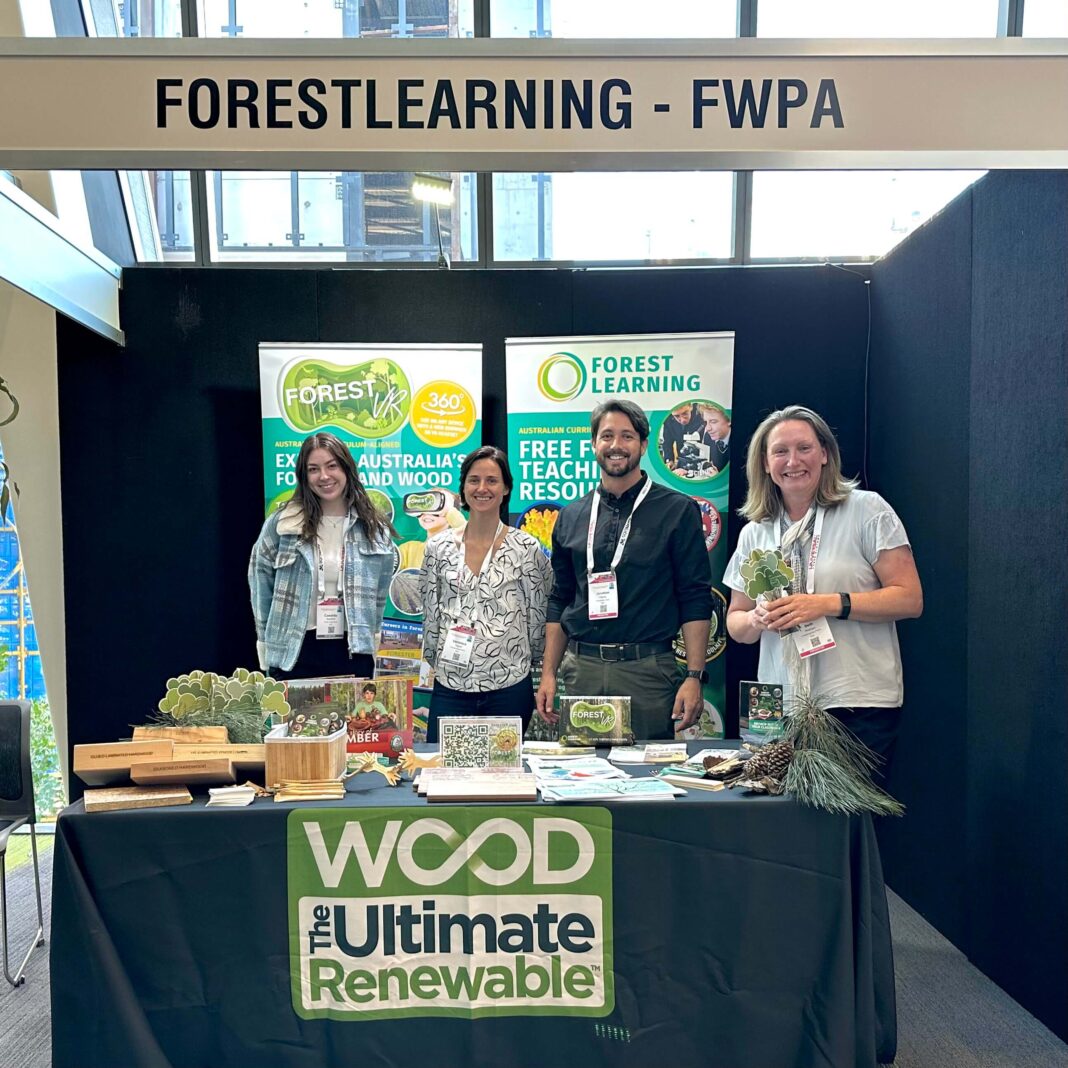Forest and Wood Product Australia’s ForestLearning program made a lasting impact at the Design and Technologies Teachers Association Queensland conference last week.
More than 200 classroom teachers from across Queensland, NSW and New Zealand gathered at the Brisbane Convention and Exhibition Centre from June 15 to 16 for the annual event.
The conference showcased how the Australian Curriculum can be used to support students to create contemporary solutions for their preferred futures – including the use of wood as a renewable and sustainable material.
Two workshops were facilitated each day by ForestLearning program manager Beth Welden, ForestLearning Curriculum Specialist Veronica Tyquin and guest co-presenter Responsible Wood and PEFC’s Jonathan Tibbits.

75% of conference delegates attended the workshops
ForestLearning presented a trade stand for the duration of the event. The four workshops proved a resounding success with 75% of total conference delegates 150) attending at least one workshop.
The first workshop, ‘ForestLearning Design and Technologies Teacher Toolkit – Building a Sustainable Future with Wood’, showcased existing and new teaching resources and videos.
It included the launch of the new ‘Thinking Outside the Box: The Sustainable Seating Project’ for Years 7 and 8.
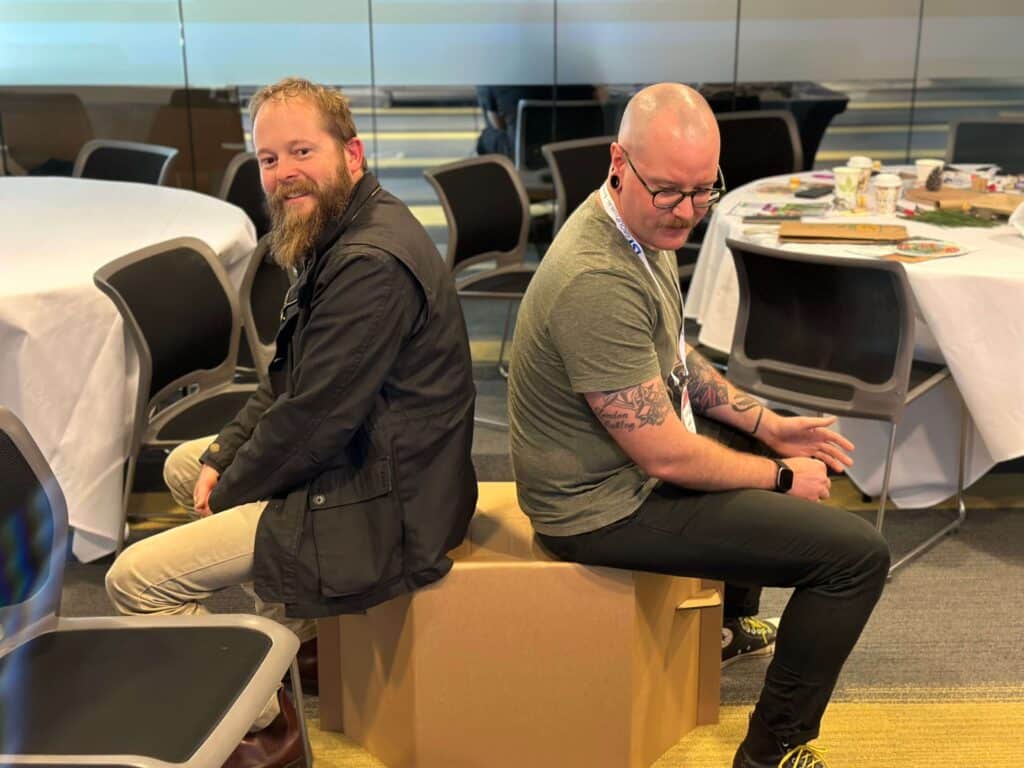
Along with a preview of four upcoming design thinking projects using wood as a material for years 5 and 6, 7 and eight and 9 and 10.
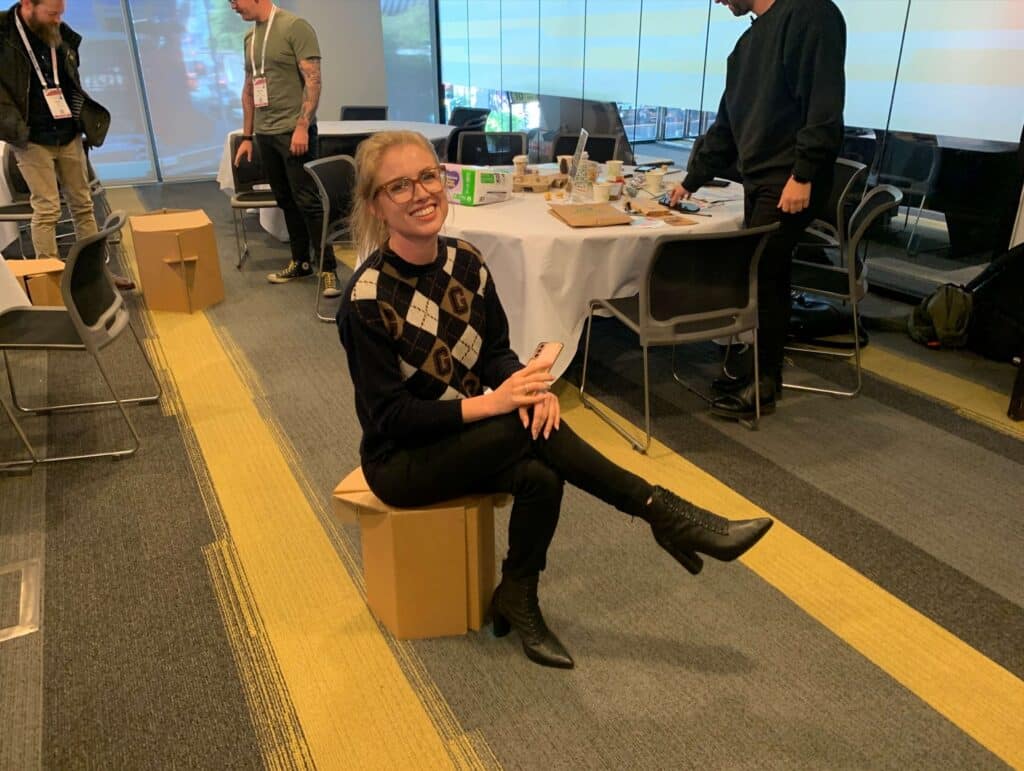
Attendees were highly engaged in the hands-on activity ‘Build a Cardboard Seat’ with support from Visy who provided three cardboard seats to construct.
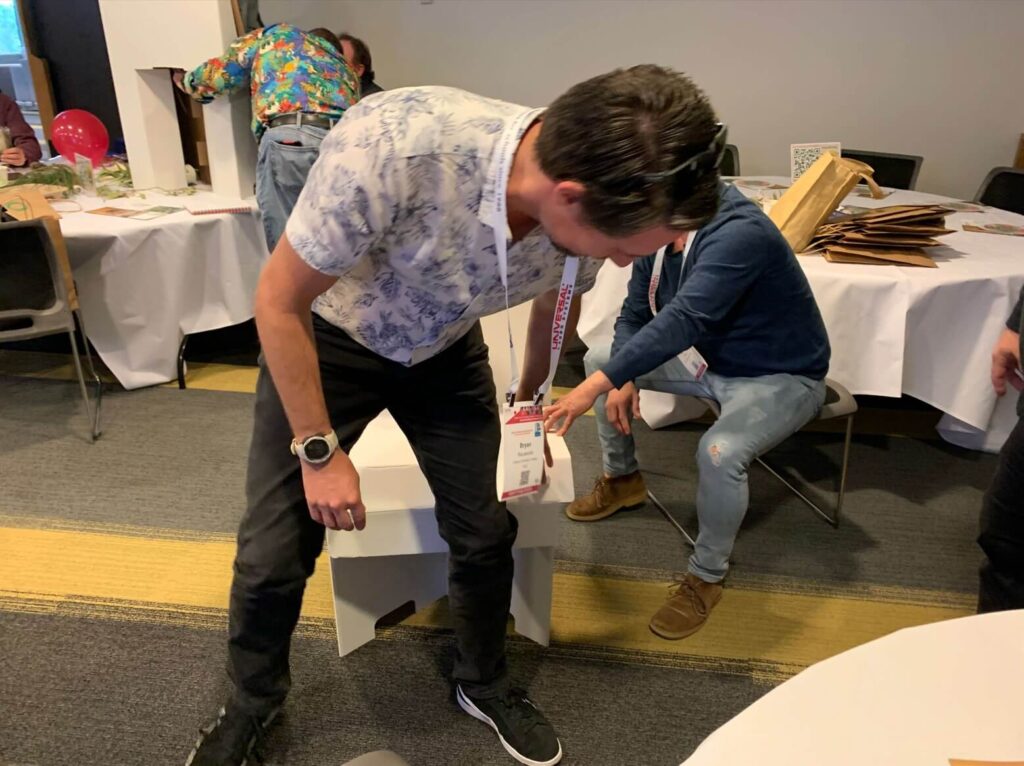
Attendees were also introduced to the education award-winning world of ForestVRTM featuring virtual tours and 360-degree videos for the design and technologies classroom.
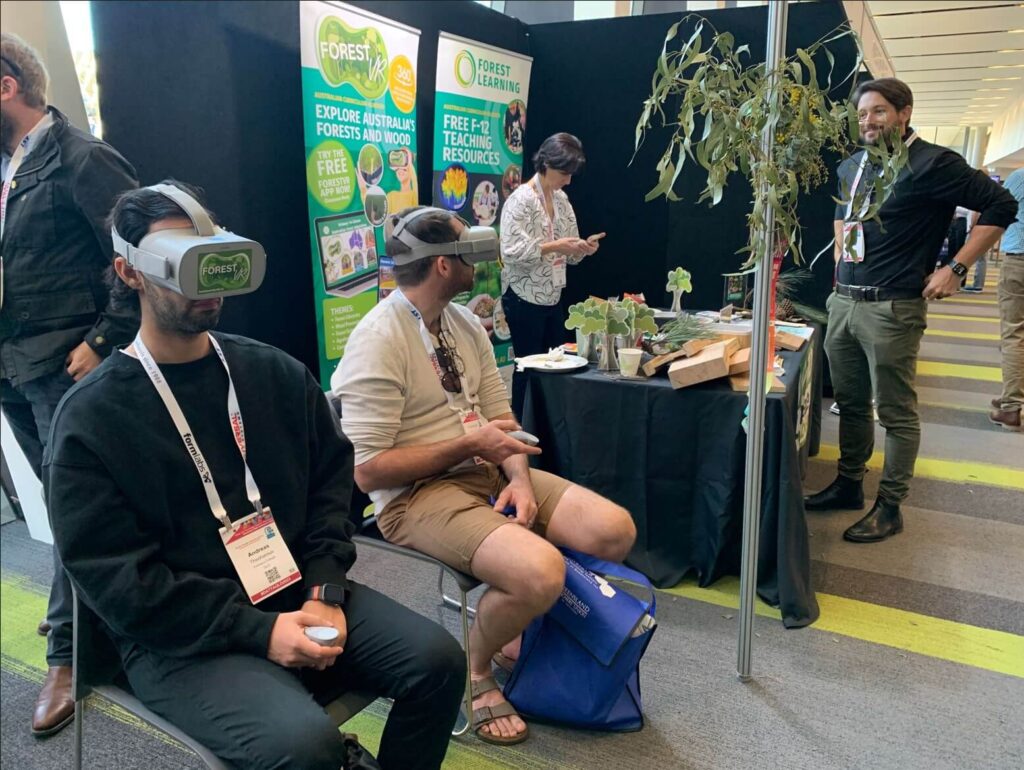
Responsible Wood highlighted sustainability in action through forest and chain-of-custody certification and led an activity to identify labels for sustainable wood sourcing.
The second workshop ‘Tree to Timber to Table: Exploring Wood’s Sustainability Credentials as a Material’ immersed attendees in the wonder of wood and engaged in discussions on the balancing act of sustainability with hands-on puzzle activities.
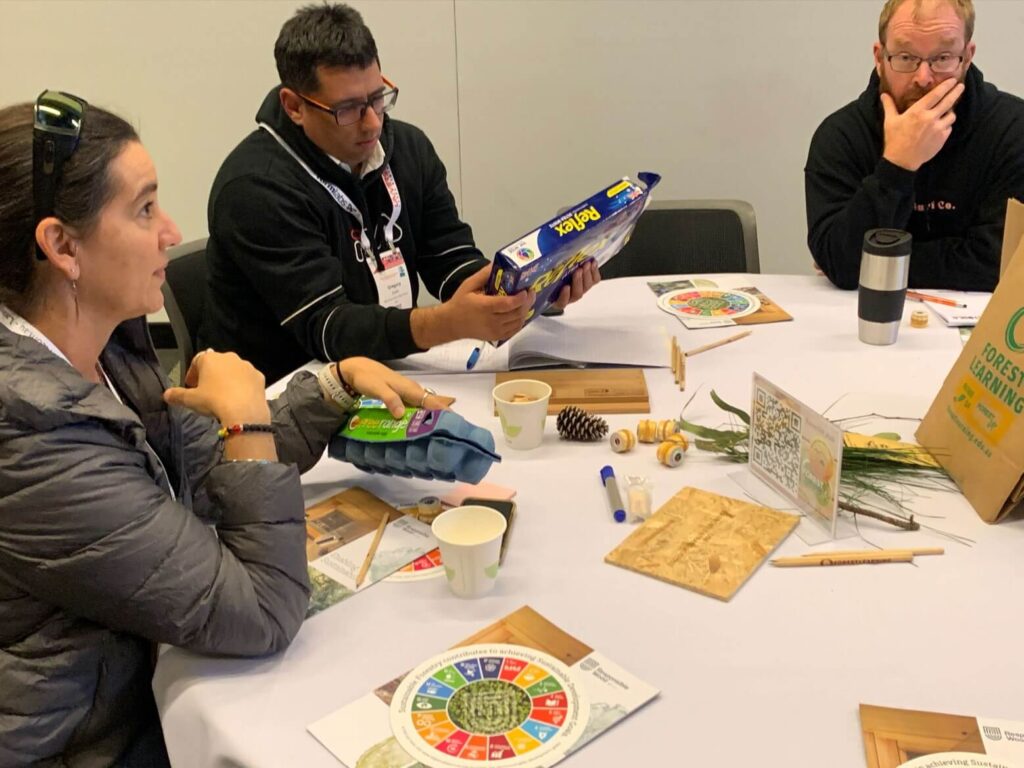
The workshop explored the significance of certification in sustainable forest management and chain of custody, shedding light on the importance of labels.
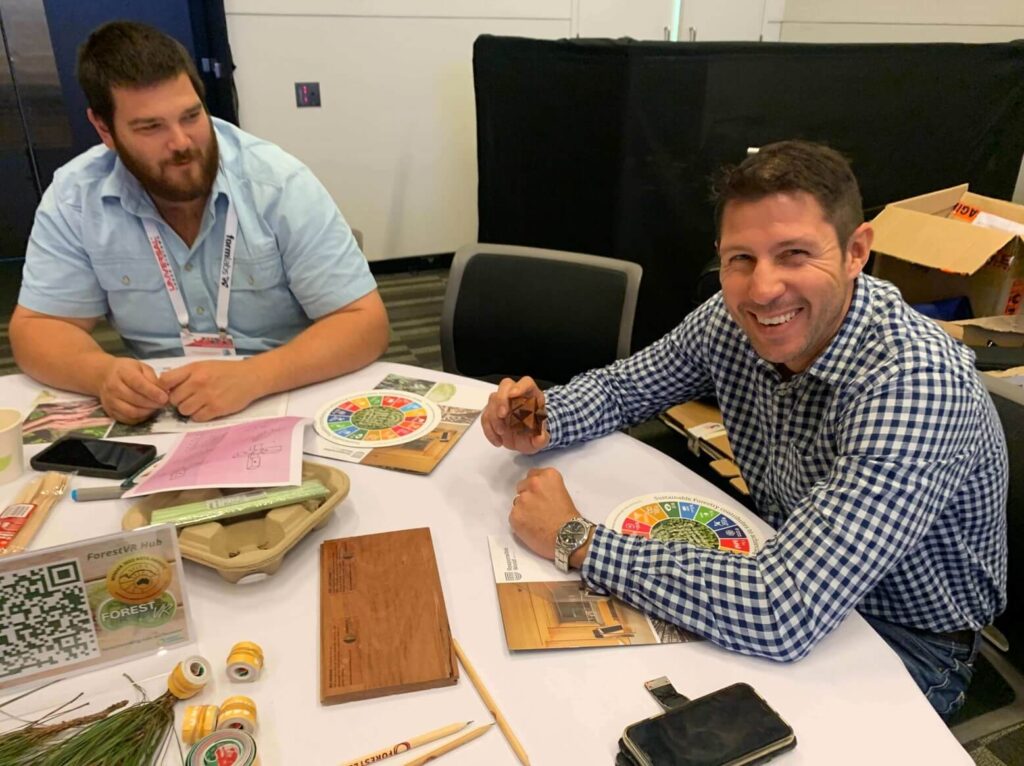
Attendees were introduced to the concept of the circular economy including communicating the concept of the circular economy in the classroom and the integration of circular economy thinking at the design stage – an outcome of the Design and Technologies Australian Curriculum.
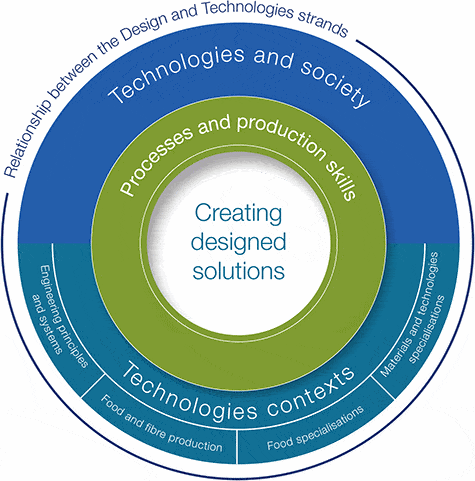
ForestLearning showcased its existing and new classroom tools for the Design and Technologies classroom that incorporate these concepts, including the highly anticipated ForestLearning Design and Technologies Toolkit and ForestVRTM immersive video tools.
ForestLearning equips teachers with knowledge and resources
The work of ForestLearning equipping teachers with the necessary knowledge and resources to present topics related to forest products such as sustainability, renewables and climate change is crucial in shaping the opinions and perspectives of young people.
For Trudy Bartlett, a trained PE teacher at Marsden State High School who has taken on Manual Arts, the ForestLearning resources are an invaluable resource to assist with setting teaching curriculums.
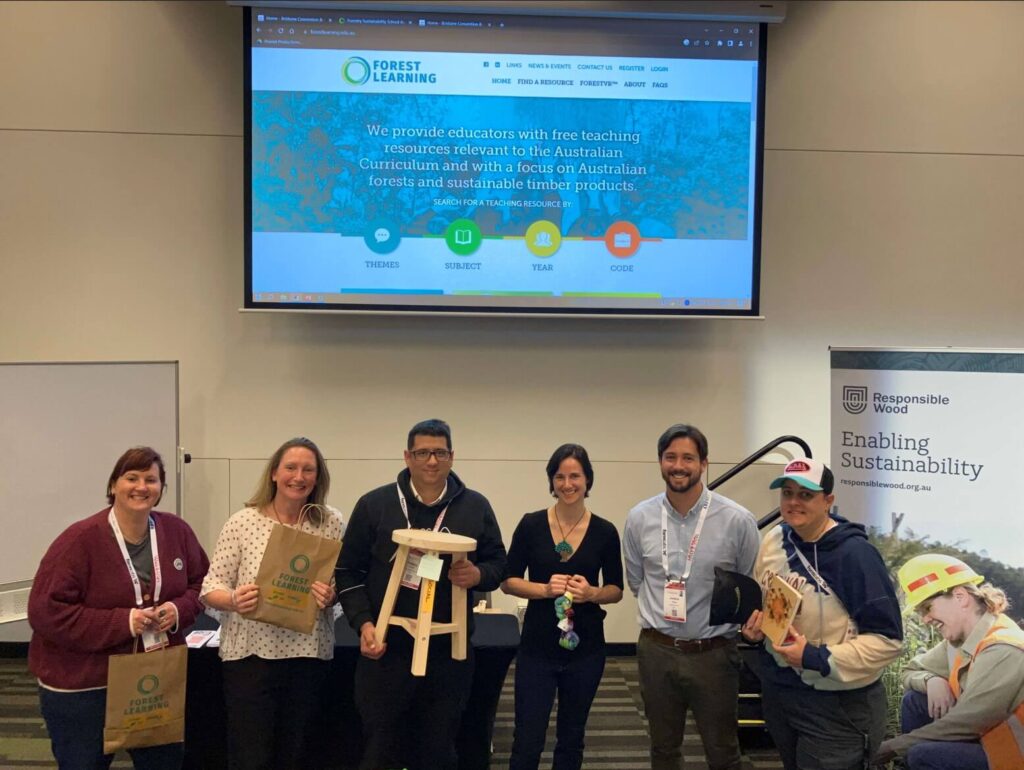
“As the next generation, they have a significant role in driving change and embracing corporate responsibility,” Beth Welden said.
“As the world faces pressing environmental challenges and increasing global concerns about climate change and sustainability, it is imperative that young people comprehend the implications and actively participate in finding solutions,” she said.
“By integrating these topics into ready-to-use classroom resources and tools and encouraging open discussions, FWPA’s ForestLearning program believes in cultivating a generation that is knowledgeable, passionate, and equipped to tackle these issues head-on.”
“By providing educators with the tools and support to navigate these subjects effectively, we empower them to inspire and educate students about the pressing environmental challenges we face, and the role of the forest industry as part of the solution.”
“Teachers play a pivotal role in fostering critical thinking, raising awareness, and instilling a sense of responsibility towards our planet.”
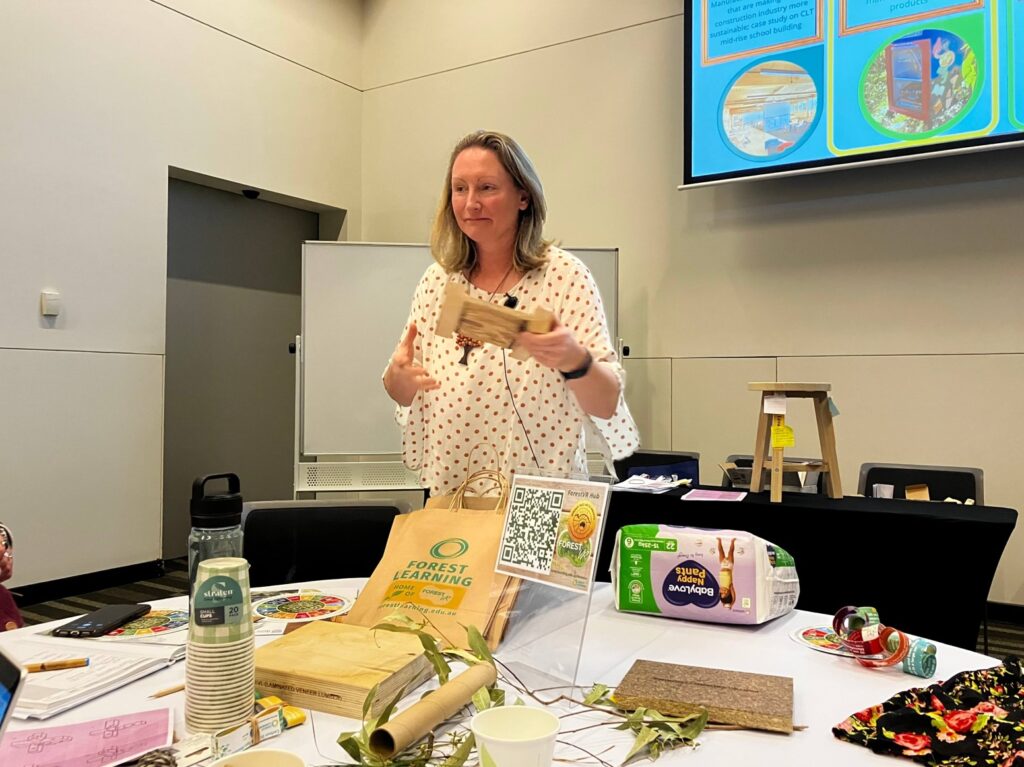
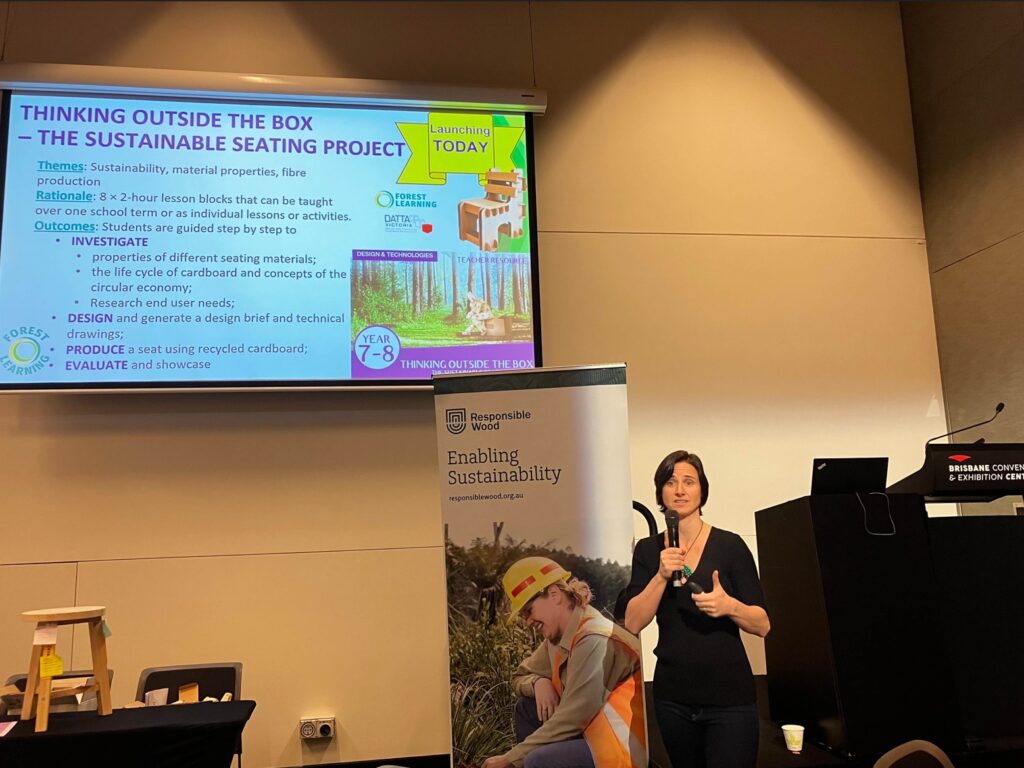
With climate change and sustainability becoming increasingly important global issues, it’s essential that the next generation understands the implications and actively participates in finding solutions.
“By integrating these topics into the curriculum and encouraging open discussions, together we can cultivate a generation that is knowledgeable, passionate and equipped to address these challenges head-on.”




